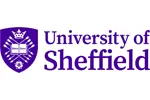

| The award | How you will study | Study duration | Course start | Domestic course fees | International course fees |
|---|---|---|---|---|---|
| MSc | Full-time | 1 year | - | GBP 12070 per year | GBP 32350 per year |
It's widely recognised by modern neuroscience that taking a systems approach to exploring the brain is vital to understanding brain function. Systems neuroscience focuses on the interactions between neural structures in networks that influence sensori-motor control and information processing. It's these interactions that provide us with a foundation for understanding the relationship between brain structure and brain function that underpins behaviour.
This 12-month course is designed to provide you with in-depth training into the core problems in systems neuroscience, and will develop your understanding of the disciplines and techniques used to address these problems such as computer simulation modelling, data visualisation and neuroanatomy.
Over three months you'll work on your research project in Cognitive Neuroscience with one of our world-leading experts in the Department of Psychology. Your research topic could range from theoretical to basic neuroscience. You may have the opportunity to collect and analyse real-life cognitive brain science data, using state-of-the-art equipment, before presenting your findings at our summer student-led conference.
The project gives you the opportunity to put your new techniques in experimental neuroscience into practice, while exploring ideas at the cutting-edge of cognitive neuroscience. It's common for MSc research projects to form the basis of publications in peer-reviewed journals.
Example research projectsIf you have a passion for understanding the brain and behaviour, whether your background stems from biology, engineering, physics, mathematics, psychology or medicine, this interdisciplinary course has been designed to ensure that all students gain in-depth knowledge of the fundamentals of neuroscience, ready for an exciting career in research or industry.
The University is home to the Neuroscience Institute which brings together internationally-recognised expertise in medicine, science and engineering to improve the lives of patients and families affected by neurological, sensory and developmental disorders.
Other courses in cognitive neuroscienceWe offer MSc courses that cover the full breadth of cognitive neuroscience, from the biological basis, to imaging and simulation, allowing you to discover the area that you're most interested in:
MSc Cognitive and Computational Neuroscience
MSc Cognitive Neuroscience and Human Neuroimaging
The fee listed is for the advertised mode of study. If you're studying for an alternative qualification or via a different mode of study (eg full-time, part-time) then the fee could be different. Due to inflation, the fee for Home students could also increase after your first year of study. Use Sheffield's fee calculator or contact the Student Fees team to check.
Fee status help
Funding for postgraduate taught courses
Department bursaries
Each year we offer two bursaries to students on this course. If you're awarded a bursary you'll receive a £1,500 reduction in your tuition fees. These bursaries are awarded on a competitive basis, based on:
Minimum 2:1 undergraduate honours degree in either a life science (including psychology) or a mathematical/physical science (including engineering).
We also accept medical students who wish to intercalate their studies.
We also consider a wide range of international qualifications:
Entry requirements for international students
Overall IELTS score of 6.5 with a minimum of 6.0 in each component, or equivalent.
Other English language qualifications we accept
Pathway programme for international students
If you're an international student who does not meet the entry requirements for this course, you have the opportunity to apply for a pre-masters programme in Science and Engineering at the University of Sheffield International College . This course is designed to develop your English language and academic skills. Upon successful completion, you can progress to degree level study at the University of Sheffield.
Intercalation
We accept medical students who wish to intercalate their studies. Find out more on the School of Medicine and Population Health website.
Below are some suggested courses at other providers that you may also be interested in:
Assessment, Measurement and Evaluation Master Degree
Faculty of Educational Sciences, University of Oslo
Find out moreIf you do not meet the entry requirements for this course then consider one of these postgraduate preparation courses from another institution:
Graduate Diploma of Engineering (Electrical Systems)
Engineering Institute of Technology
Find out moreThere are 426 other courses listed from University of Sheffield. A selection of these are displayed below:
Acquired Communication Disorders MSc, PG Diploma, PG Certificate
University of Sheffield
Find out moreJoin the StudyLink email list and never miss a chance to turn your study abroad dreams into reality!

See other universities in Sheffield
Find out more about studying in the United Kingdom